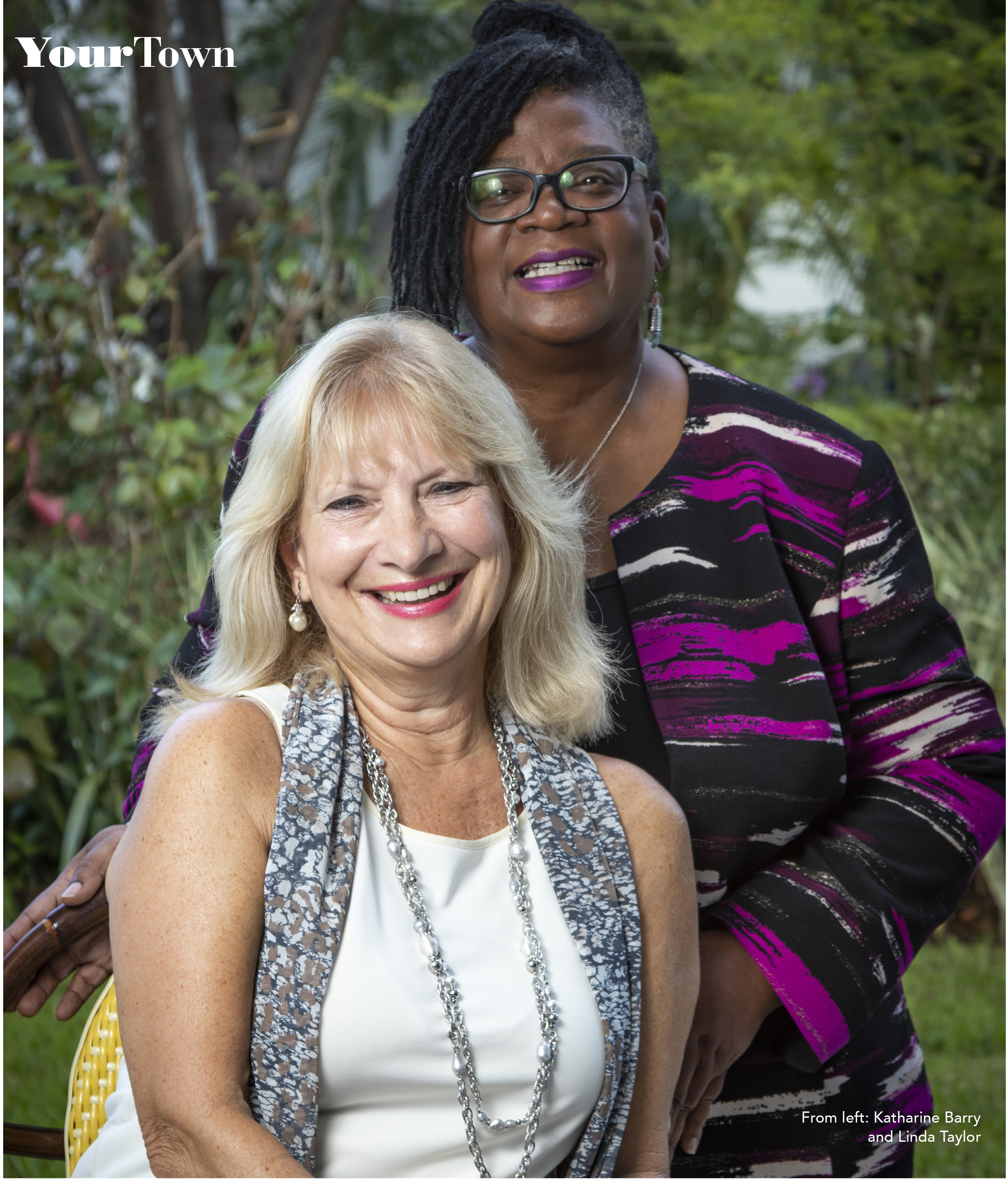Las Olas Lifestyle Magazine. October 2018 Issue

H.O.M.E.S. SWEET HOMES
A nonprofit celebrating 20 years continues to provide far more than home ownership and rental opportunities for low-income families and aged-out foster children
BY KEVIN KAMINSKI / PHOTO BY EDUARDO SCHNEIDER
The light switch flipped for Katharine Barry more than two decades ago while taking a personality test as part of Leadership Broward. She’d been a member of the bar since 1980, but by the early 1990s she’d grown weary of her role as a commercial litigator. Her sister-in-law had just died of breast cancer at age 42. And something deep inside was gnawing at her.
Looking at the results of the test, Barry realized what it was."I was doing everything I hated and nothing I loved," she says.
What Barry loves, and what she has devoted her life to for the past 20 years, has had life-altering ripple effects for individuals and families in Broward County who, previously, had no sense of place, let alone a connection to their community. Thanks to the benevolent work of H.O.M.E.S. Inc., the nonprofit organization she started in 1998, some 225 single-family residences have been built or refurbished for first-time, low-income purchasers; more than 1,000 tenants facing economic struggles have moved into affordable rental units; and nearly 170 young adults have continued their education, received job coaching and found stable living conditions through a program that targets aged-out foster children.
Along the way, the ability of H.O.M.E.S. to engage other nonprofits and corporate partners has transformed once-blighted neighborhoods like the one that the organization’s CEO, Linda Taylor, grew up in—and, a few years ago, moved back into.
By 2006, Barry could no longer conduct the business of her nonprofit from inside her own house. "Contractors were coming over every morning for meetings; my husband finally said, ‘I can’t come out for coffee in my underwear anymore—it’s time for you to find an office,’" she says with a laugh.
Barry found a 2.3-acre parcel of land along Northeast 13th Street and Dixie Highway, now known as Central City, that would house the H.O.M.E.S. campus, along with affordable housing and rental units. At the time, businesses in that neighborhood were boarded up and buildings on the property were so dilapidated that the bank didn’t even count them as having value as part of the purchase.
"We used to have drug deals every day right in our parking lot," Barry recalls. "Linda and I would run outside and chase them off."
With little money for revitalization, Barry and Taylor and their volunteers slowly embarked on the holistic engagement that has become a hallmark of H.O.M.E.S. They painted the buildings that needed it. They cleaned trash on weekends. They hosted street parties and fun runs. And they brought together residents interested in a neighborhood makeover with leaders in the community who could help make that dream a reality.
Within five years, the neighborhood had an alliance of businesses, civic groups and residents (now called the Central City Alliance) and a community redevelopment area with the alliance, city and county. Businesses are moving back into the neighborhood. And, earlier this year, H.O.M.E.S. earned a Community Appearance Award for "Excellence in Urban Design" from the city of Fort Lauderdale for its "Unity Beacon Sculpture" in front of its office.
"You don’t go into a neighborhood telling people what they need. Or what to do," says Taylor, who worked at the Urban League of Broward County before joining H.O.M.E.S. 11 years ago. "That’s why a nonprofit is critical to neighborhoods; our role is a gentler, kinder way of bringing people together to create a plan. We’ve successfully done that here.
"It’s heartwarming to see the change. Now, people are riding their bikes and running at night. And they’re not running from the police."
"My theory has always been that if you see a little group of people always doing something positive and visible in the neighborhood, people start to think that it’s not so hopeless," Barry says. "Maybe something good can happen in the community."
The Youth Supportive Housing and Self-Sufficiency program that H.O.M.E.S. started in 2009 has done its own share of good, and then some, for aged-out foster children who, otherwise, would have been homeless. In addition to the combined 21 apartment bedrooms available for no more than $400 a month, tenants can take advantage of speakers and classes that provide everything from financial education to life coaching.
"It doesn’t hit you until you see it—a teen, on their 18th birthday, with their life’s possessions in a garbage bag," Taylor says. "A child who has been abandoned [or emotionally damaged] by the people who should nurture and care for them, they are filled with such anger, that it’s disabling. We have to make some allowances for that. So, we don’t just give second chances. We’ll give fifth and sixth chances because they have such a long road to recovery."
Barry is the first to credit the organization’s partners on various endeavors—among them, the Jim Moran Foundation; the Community Foundation and AutoNation, which assisted with the youth program; and the Moss construction management firm and the Florida Panthers, which are currently supporting an eight-home housing project in the Broward Municipal Services District. But she also knows this journey required a leap, one that, 20 years later, she’s proud to have taken.
"To see the people’s lives that we’ve touched, neighborhoods that we’ve helped to move forward, is very gratifying," Barry says. "Just to be able to do something you’re passionate about every day is a gift."

